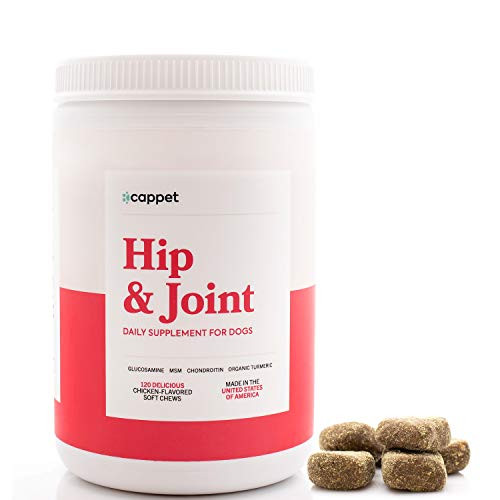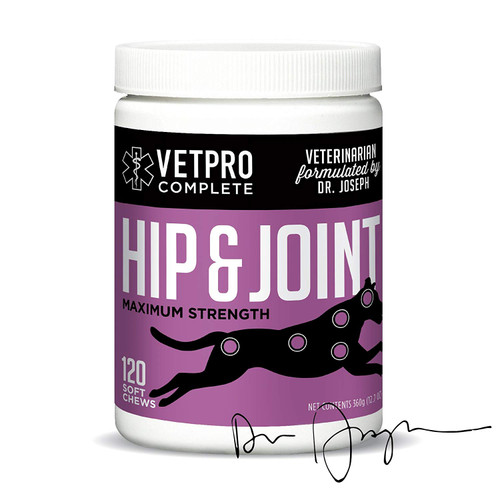Veterinarian Approved Formulation
Cappet's Hip and Joint daily dog supplement comes with 120 soft chews. Dogs love the delicious chicken flavor, and you can rest easy knowing we use only natural and American-raised chicken. Each soft chew contains Glucosamine, MSM, Chondroitin, and Indian Organic Turmeric, all chosen to help promote your dog's hip and joint health and flexibility, and all part of our veterinarian approved formulation. Additional active ingredients include Vitamin C, Hyaluronic Acid, and Black Pepper. Our chews contain no corn, wheat, soy, or any genetically modified ingredients (non-GMO). Cold processed in an FDA-registered facility. Lab-tested for your dog's health and safety. We use thoughtfully-sourced ingredients, manufacture exclusively in America, and are dedicated to helping humans understand pet health so they can make smart choices for the animals who depend on them.
Frequently Asked Questions
What are glucosamine and chondroitin? Glucosamine and chondroitin are naturally-occurring compounds found in the cartilage of dogs (and people too). As dogs age, the natural production of these substances slows down, which can contribute to joint pain (especially in the hips), decreased flexibility, and stiffness. This deterioration, combined with other age-related factors, can also contribute to painful arthritis in dogs. A 2007 study, which consisted of a randomized double-blind trial involving 35 dogs, found that dogs with osteoarthritis of hips or elbows and who were given a combination of glucosamine and chondroitin orally, showed improvements for pain, weight-bearing, and severity of condition. Another 2007 study and a 2012 study both saw alleviation in pain that correlated with the use of glucosamine and chondroitin by arthritic dogs. We encourage you to read these studies to fully understand both what they did, and what they did not, conclude.
Daily Hip and Joint Supplement for Dogs 120 Chicken Flavored Soft Chews with Glucosamine Chondroitin MSM and Organic Turmeric
Was:
$147.80
Now:
$73.90
- SKU:
- q221860
- UPC:
- 860001145106
- Condition:
- New
- Availability:
- Free Shipping from the USA. Estimated 2-4 days delivery.





